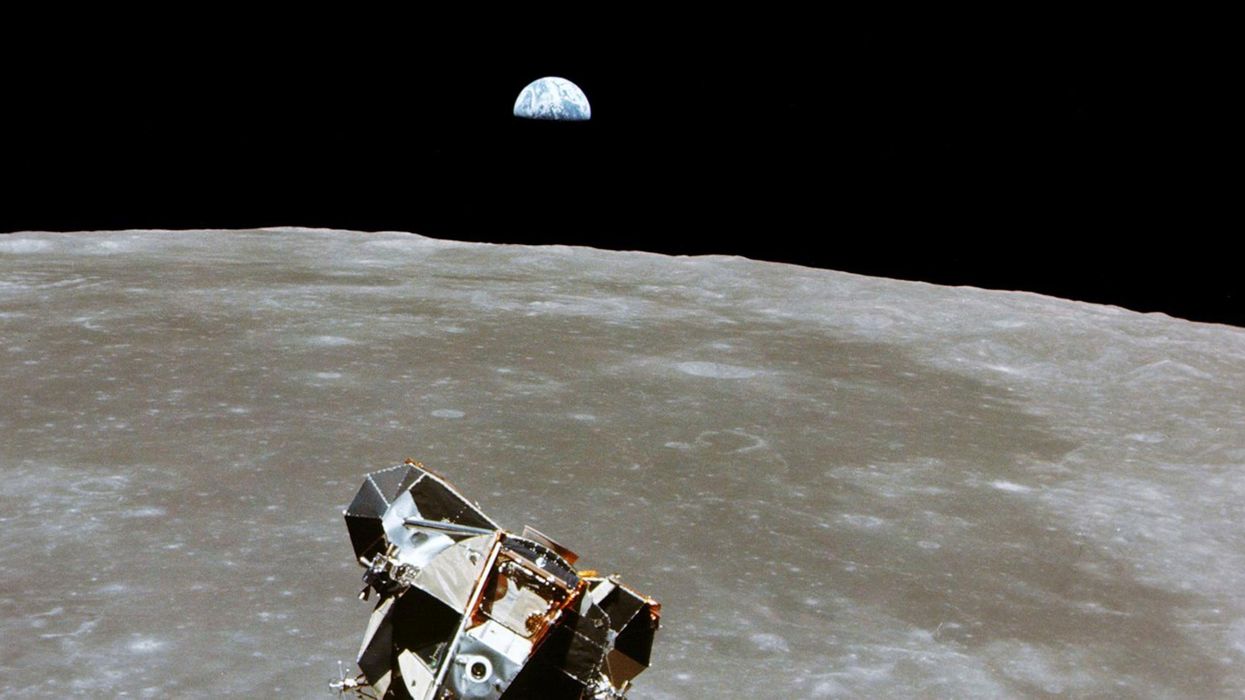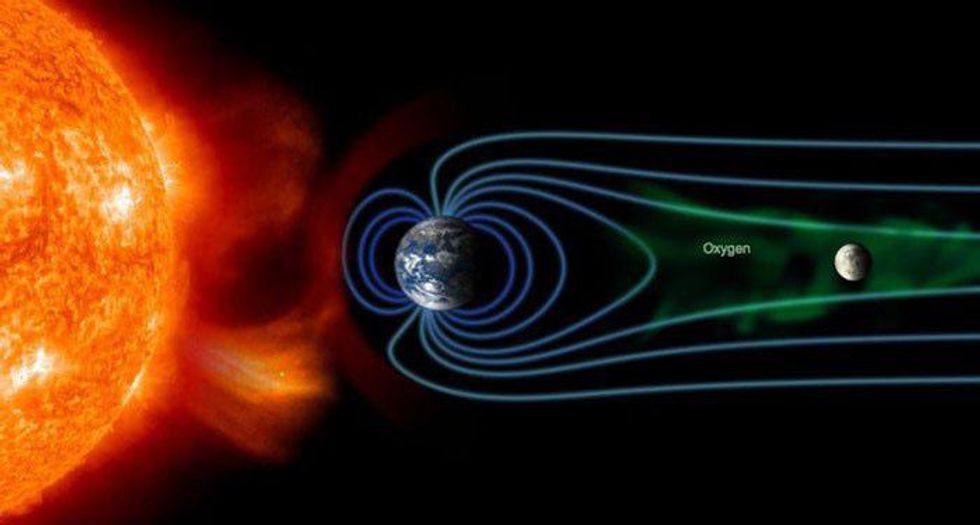Science & Tech
Louis Dor
Jan 31, 2017

Picture:
NASA/Newsmakers
Every five days of a lunar cycle, the Moon orbits so that the Earth is placed between it and the Sun.
During this time, the Moon orbits across the Earth's magnetotail.
This is the area of the planet's magnetosphere with is swept back by solar wind.
New results from Japan's Selenological and Engineering Explorer (SELENE) have found that during this time, significant amounts of Earth's terrestrial oxygen rain onto the Moon's surface.
See the artist's impression, below:

Astrophysicist Kentaro Terada from Osaka University in Japan told The Atlantic:
[Earth's] upper atmosphere consists of oxygen ions that are easily picked up by the solar wind and transported to the Moon.
Maybe some portion is implanted on the Moon, and some portion is lost into interplanetary space.
Analysing data from Japan's lunar orbiter, they found it recorded high levels of oxygen ions while orbiting the moon, but only during a distinct five day period of each lunar orbit. This coincided when the moon was shielded from the solar wind by Earth's magnetosphere.
The magnetic field, which envelops the moon in a teardrop shape extending out beyond the moon in a long tail protects from solar radiation, but also pushes parts of earth's atmosphere out.
Researchers say this is the most plausible explanation for oxygen from Earth being found in lunar soil.
Planetary scientist Craig Hardgrove from Arizona State University, who wasn't involved with the study, told The Atlantic:
For me, it was cool that a moon of a planet can preserve information about the planet, just from the solar wind.
HT ScienceAlert
More: Scientists can't explain these strange signals coming from another galaxy
Top 100
The Conversation (0)













